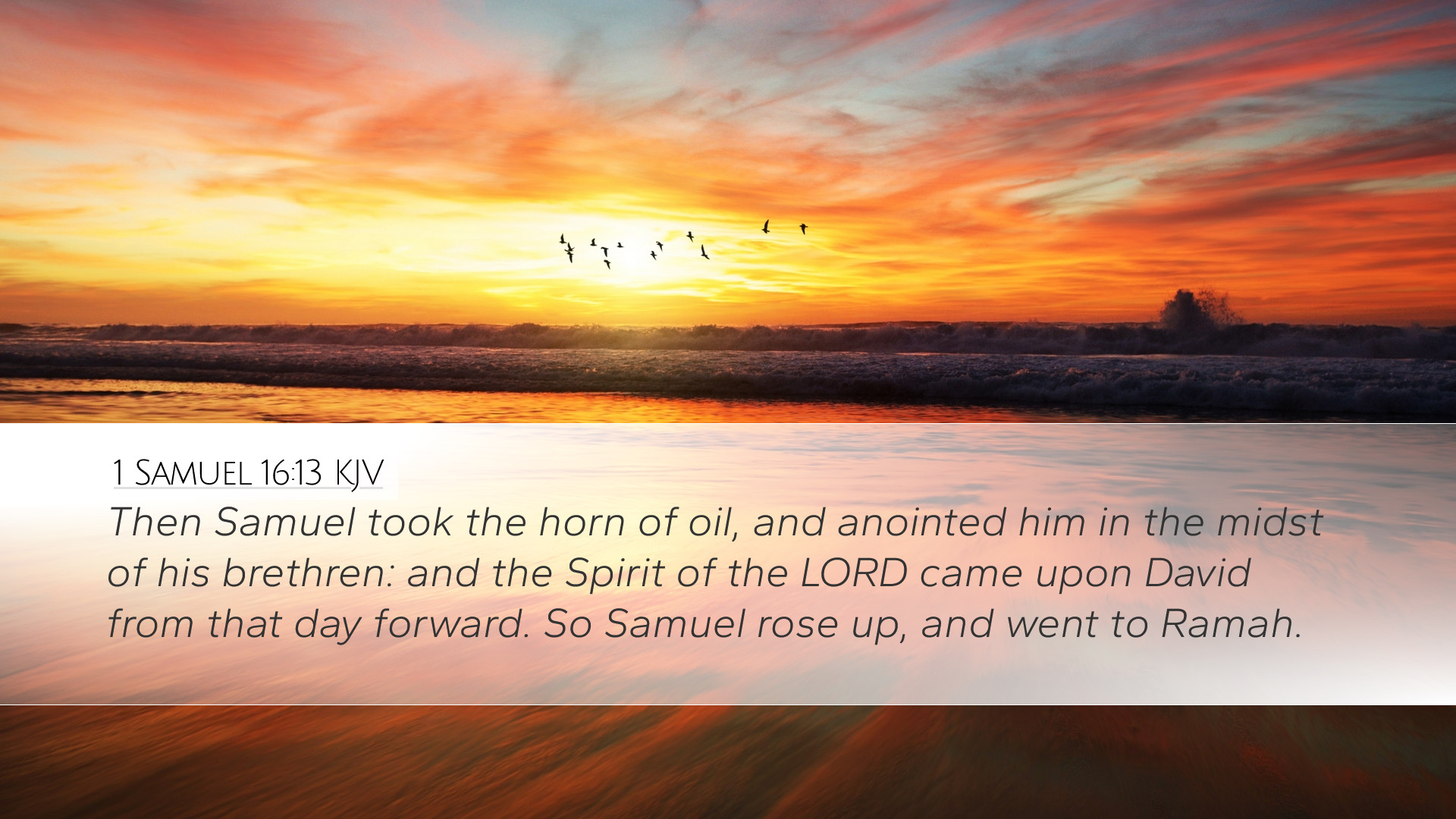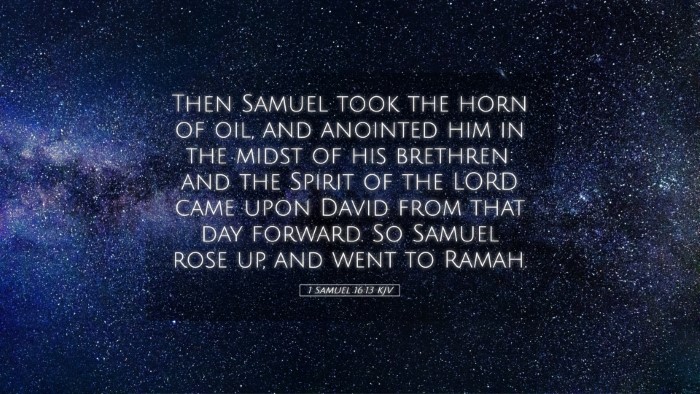Commentary on 1 Samuel 16:13
1 Samuel 16:13 states, "Then Samuel took the horn of oil and anointed him in the midst of his brothers. And the Spirit of the Lord rushed upon David from that day forward. And Samuel rose up and went to Ramah."
Introduction
This significant moment in Israel's history marks the anointing of David as the future king, chosen by God through the prophet Samuel. The themes of divine selection, the work of the Holy Spirit, and the implications of anointing are paramount for understanding this pivotal event.
The Act of Anointing
Samuel’s act of anointing David is rich in meaning and purpose. Matthew Henry observes that this ceremony symbolically set David apart for divine service and the leadership of Israel. Anointing with oil, a practice rooted in ancient customs, signifies the empowering presence of God and the commissioning for service.
Albert Barnes adds that this anointing not only indicates David’s selection but also illustrates the transition of power in Israel, moving away from Saul’s decline. The act is a clear declaration of God’s sovereignty as He chooses what is often overlooked by men—David, the unlikely candidate.
In the Midst of His Brothers
The anointing occurs “in the midst of his brothers,” which reflects a key point in God’s plan. Adam Clarke notes that David's brothers were present, yet none were chosen for this honor, highlighting God’s ways that often contradict human expectations. This serves as a powerful reminder that God looks at the heart rather than outward appearances.
The Spirit of the Lord
A significant aspect of this passage is the statement: “And the Spirit of the Lord rushed upon David from that day forward.” This event marks David's empowerment for the future role he would undertake. Matthew Henry emphasizes that the filling of the Spirit is crucial for effective leadership and godly living.
Albert Barnes explains that the immediate filling of the Holy Spirit is foundational for David’s subsequent actions and decisions as king. Unlike Saul, who was rejected by God, David’s anointing with the Spirit signals a divine endorsement of his kingship and the legitimacy of his future reign.
The Role of Samuel
The departure of Samuel after the anointing signifies both an end and a new beginning. Adam Clarke suggests that this departure indicates the closure of a previous era of leadership under Saul and the opening of a new path for David. This act by Samuel underscores the prophetic authority in guiding God’s people, reminding us that divine guidance is essential for any leader.
Theological Implications
The anointing of David brings forth various theological themes worth pondering:
- Divine Sovereignty: God’s choice of David reveals His authority in appointing leaders according to His will.
- Empowerment of the Spirit: The anointing with oil symbolizes the infilling of the Holy Spirit, equipping David for service.
- God’s Perspective: True worth and capability are found in the heart, showcasing God’s preference for spiritual integrity over worldly status.
- Transition and Hope: This moment reflects the shift from disorder under Saul to the promise of restoration through David, demonstrating God’s redemptive plan.
Conclusion
The anointing of David encapsulates essential truths for pastors, students, theologians, and scholars. It is a powerful reminder of God's providential hand over history, His selection of leaders who align with His heart, and the necessity of the Holy Spirit in effective ministry. As we reflect on this scripture, may we be encouraged to seek God’s will and rely on His Spirit for the challenges of leadership in our own contexts.


